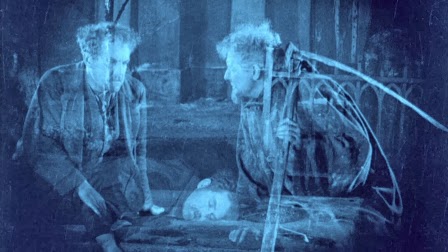My third year has started and I'm very excited for everything that is going to come: my dissertation project, the possibility of attending the summer school in NYU, and the exciting opportunity of applying to the London Film School for a MA in Screenwriting.
To celebrate this great beginning and the hopefully bright future ahead I want to share 4 experiences I had at the cinema during the past 3 weeks.
Boyhood
(Richard Linklater, 2014)
The splendor of simplicity.
Boyhood was an absolute revelation, a film that I would define splendid for its touching lightness, its great soundtrack and acting and the ambitious, but perfectly accomplished project it achieved.
Cinema has always been interested with the capturing of time-passing and life on screen, Boyhood follows the life of Mason by following his actor and the whole cast over 12 years. This growth process is accompanied by all the changes in technologies, music trends, clothes, dreams and family problems we, kids born in the 90s, went through.
The film is funny, true to itself and deeply moving. A little gem that should be cherished for as long as possible.
My favourite scenes were probably the ones involving the father and his music lectures while driving somewhere, an experience I can absolutely relate to and still one of my favourite moments in the company of my dad.
Watch the trailer here:
20.000 Days on Earth
(Iain Forsyth and Jane Pollard, 2014)
Thanks for this little history Nick.
Nick Cave, the importance of remembering, the transforming power of performance. These are the three key elements of the exquisite experimental picture following the 20.000th day on earth in the life of living music legend Nick Cave. Being a big fan of his work was only a part of the process of falling in love with this film. The biggest achievement of the film was the intertwining of different spaces and times sequences which exquisitely came from the memory process Nick goes through during the meeting with his psychiatrist. Moreover, photographs, footage of concerts, and stories from Nick's collaborators were used to create this storytelling web that finally forms Nick Cave's memory as a man, a musician, a singer, a composer, a writer, a storyteller. And a damn fine one.
An absolutely dazzling experience, beautifully shot and edited, moving and deep as Brighton's sea.
For you know the time is nigh
When I must remove your wings
And you, you must try to fly.
(The Ship Song, Nick Cave)
Thanks for making us fly Nick.
If anybody is interested Nick Cave will be playing in London in May, I already got my ticket for May 3rd at the Royal Albert Hall. It's gonna be worth every minute of it.
Watch the trailer here:
Gone Girl
(David Fincher, 2014)
Wow. What the hell just happened? This was my thought during the whole film, but I adored its cleverness and I will soon venture into reading the book. I was completely taken into the story and I never felt the narrative was becoming cliché or the film too long for the narrative. It was amazing to watch it at the Odeon during its big weekend opening because it was a collective spectatorial experience. We all laughed (a lot), got shocked (even more), thought wtf (more than anything) and I thought it was brilliant. The acting was one of its most accomplished components: Rosamund Pyke was unbelievable, stunning, she held the story together and developed her complex character in a very intriguing way. Ben Affleck gave a good performance as well, but, in my opinion, the secondary characters made the film: Neil Patrick Harris as Deni Collings, Carrie Coon as Margo Dunne, Kim Dickens as Detective Rhonda Boney and all the others.
David Fincher and Gillian Flynn created a strong collaboration and managed to turn a best-selling thriller from words to visual without disappointing the readers and spectators.
You will like the film if you're a Hithcock's fan (think about Vertigo, especially), if you liked but also had problems with Fatal Attraction, and if you would love the idea of a combination of these two with much much more.
Watch the trailer here:
Björk: Biophilia Live
(Nick Fenton and Peter Strickland, 2014)
I happily managed to get a ticket for the Sonic Gala hosted by this year's London Film Festival showing the premiere of Björk's concert focused on her album Biophilia (2011). In my opinion, Björk is one of the most complete visual and musical artists we have today, she creates a whole universe out of her music and she has strong performance qualities through which she can engage, move, electrify and absolutely puzzle her audience. Biophilia as a concept gave life to an album rich in poetry, creativity and dedication. The Earth, the Moon and everything that composes nature around us become the protagonist of the visual design of the concert and the film. They open up to us through the stunning sound and musical instruments expressly created for the album and Björk's voice and gestures accompanied by the stunning female choir from Iceland.
At the end of it I just wanted to stand up, dance and congratulate the directors and producer, and her who has always remained true to her music and herself.
Watch the trailer here:






+PHOTO1.JPG)










































